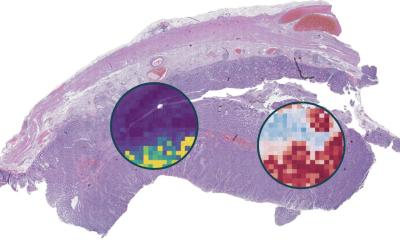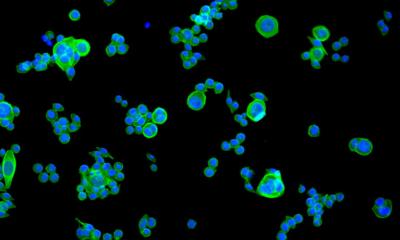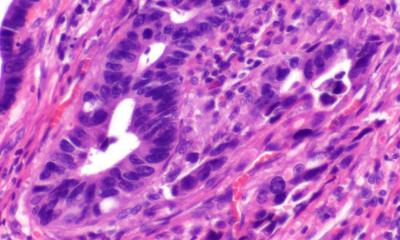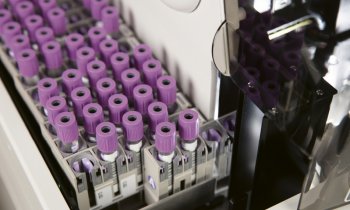News • Colon cancer
Biomarkers identify aggressive Tumors
Early-stage colon cancer patients could benefit in the future from specific genetic tests that forecast their prognosis and help them make the right decision regarding chemotherapy.
Two of the biomarkers involved are the MACC1 gene, high levels of which promote aggressive tumor growth and the development of metastasis, and a defective DNA mismatch repair (dMMR) system, which plays a role in tumor formation. Life expectancy is longer for patients with dMMR tumors and with low MACC1 gene activity.
The blood test can indicate whether there is a higher risk of the tumor returning or metastasizing. It helps with the difficult decision of whether early-stage patients should receive chemotherapy.
Ulrike Stein
Blood tests can help predict chemotherapy success
In recent years, scientists have successfully identified genetic subtypes of malignant colon tumors, all of which carry a different prognosis for how the disease will develop. Up to 15 percent of these malignant tumors, for example, exhibit defective DNA repair mechanisms – known as DNA mismatch repair deficiency or dMMR. Another important biomarker is the gene MACC1 (metastasis-associated in colon cancer 1), which was identified by Ulrike Stein and her colleagues at MDC in 2009. There is now a patented blood test for MACC1 detection.
The five-year survival rate for patients with stage I-III colon cancer who exhibit low levels of MACC1 lies at 80 percent – in comparison to just 15 percent for patients with high MACC1 levels. “The blood test can indicate whether there is a higher risk of the tumor returning or metastasizing,” says Stein. “It helps with the difficult decision of whether early-stage patients should receive chemotherapy.” This now also includes patients in stage II of the disease with impaired DNA repair mechanisms.
Source: Max-Delbrück-Centrum für Molekulare Medizin in der Helmholtz-Gemeinschaft
28.07.2017








